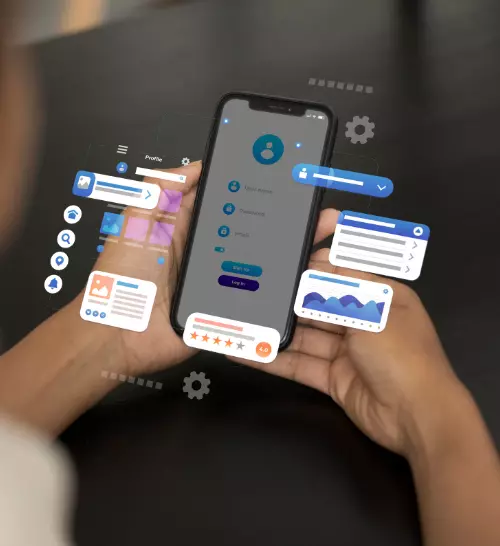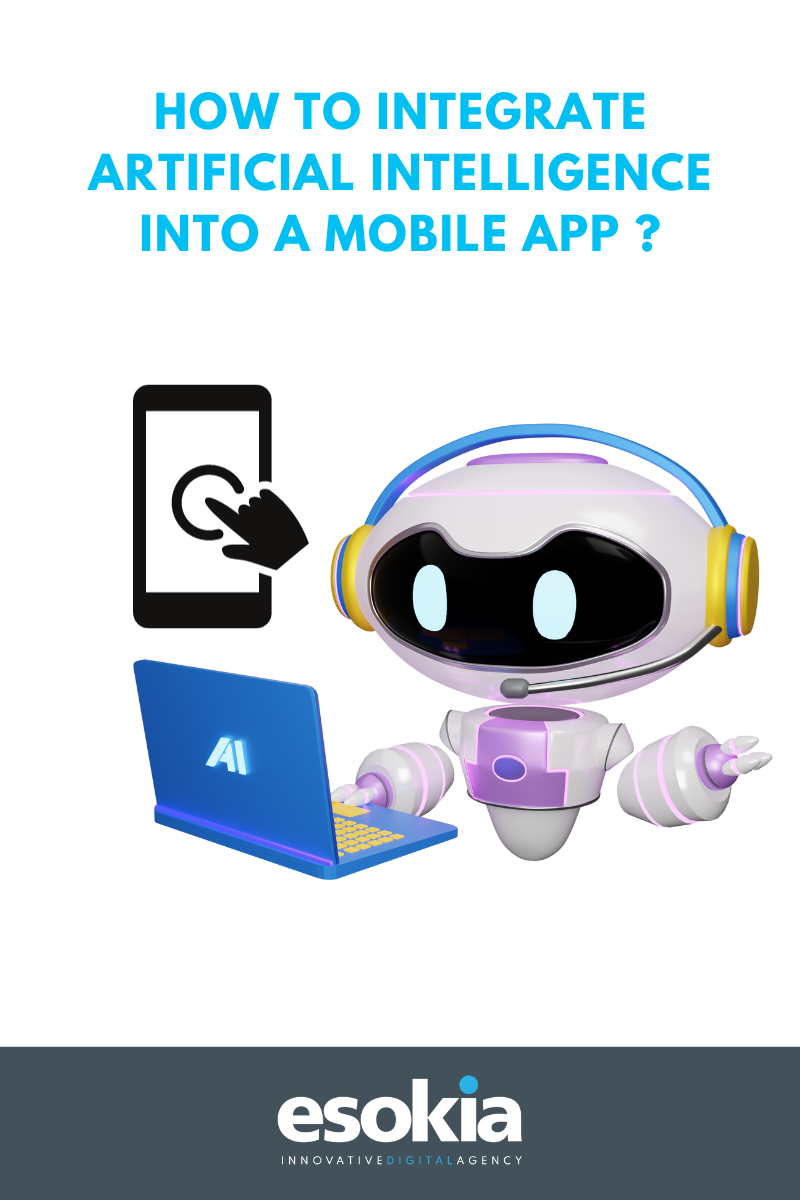
- Application mobile
Développement offshore : Comment créer une application mobile tout en maîtrisant son budget ?

Artificial intelligence (AI) is now omnipresent in our daily lives, particularly in the field of mobile application development. This technology, once considered futuristic, is now a tangible reality that is transforming the way we interact with digital technologies. Understanding AI and its application in mobile applications is therefore essential for anyone seeking to remain at the forefront of this technological revolution.
Artificial intelligence, commonly referred to as AI, is a field of programming and technology that focuses on creating systems that perform tasks that would normally require human intelligence. These tasks can include activities such as speech recognition, learning, planning and understanding natural language.
AI can be classified into two main categories: weak AI and strong AI. Weak AI, also known as narrow AI, is designed to perform a specific task, such as speech recognition. Strong AI, on the other hand, can understand, learn and apply knowledge to a variety of tasks. Although strong AI is still largely theoretical, with few practical examples in the real world, weak AI is already widely used in a variety of applications.
Artificial intelligence is increasingly used in the creation of mobile applications, bringing a new dimension to the user experience. For example, AI is being used to develop intelligent virtual assistants that can understand and respond to user queries in natural language. These assistants can perform a variety of tasks, from managing appointments to providing personalized recommendations, to carrying out online searches.
In addition, AI is used to create personalized recommendation systems that can predict user preferences based on past behavior. These systems use machine learning algorithms to analyze user data and provide relevant recommendations. This can improve user engagement and increase app loyalty.
Mobile applications also use AI for image and voice recognition, text analysis, behavior prediction, real-time translation and many other features. These applications can learn and adapt based on user interactions, offering a more personalized and efficient experience.
In addition, AI is also being used to improve the security of mobile applications. For example, AI can be used to identify suspicious or abnormal behavior, enabling early detection of threats and rapid response.
Integrating Artificial Intelligence (AI) into a mobile application is a process that requires a thorough understanding of programming, Machine Learning algorithms and software architecture. The objective of the application must be clearly defined, specifying the specific tasks the AI is to perform. For example, if the mobile application requires Big Data analysis, the AI must be programmed to understand and analyze this data.
The AI must then be integrated into the design of the mobile application. This involves creating user interfaces that facilitate interaction between the user and the AI. Developers must ensure that the AI is easy for users to use and understand. What's more, thanks to deep learning and neural networks, the AI must be able to adapt and learn from interactions with the user.

Artificial Intelligence is increasingly used in the development of mobile applications. It offers a multitude of possibilities, from enhancing the user experience to creating innovative new features. Here are just a few examples of mobile applications using AI.
PhotoDirector is a photo editing application that uses AI to improve image quality. AI is able to analyze images and identify areas that need improvement. It can then automatically apply filters and effects to improve image quality.
In addition, PhotoDirector uses AI to offer editing suggestions. By analyzing photos, AI can suggest effects or modifications that could improve the image. This enables users to create high-quality photo montages without the need for advanced technical skills.
Finally, PhotoDirector uses AI to facilitate photo management. AI can recognize faces and objects in photos, enabling users to search and sort their photos more efficiently. This makes the application easier to use and enhances the user experience.
Mubert is an innovative mobile application that uses Artificial Intelligence for music creation. The application, developed by a specialist mobile app agency, uses Machine Learning and Deep Learning to analyze a vast set of musical Big Data. The AI algorithms, based on neural networks, produce personalized music tracks based on user preferences, automating the music creation process through technology.
The music creation process on Mubert is a perfect example of the application of programming and automation in mobile application development. Users select the musical genre of their choice, and Machine Learning algorithms generate an original track in a matter of seconds. Whether for a hybrid application or PWA development, Mubert offers a wide variety of genres, from electronic and pop to jazz and classical.
Mubert is also a valuable tool for music professionals and content creators. The mobile app can generate royalty-free music, ideal for videos, podcasts and other productions requiring a soundtrack. With its Deep Learning technology, Mubert can create music tailored to the mood or atmosphere of specific content, offering a more immersive audiovisual experience. Chatbots integrated into the mobile application facilitate navigation and interaction with the user interface.